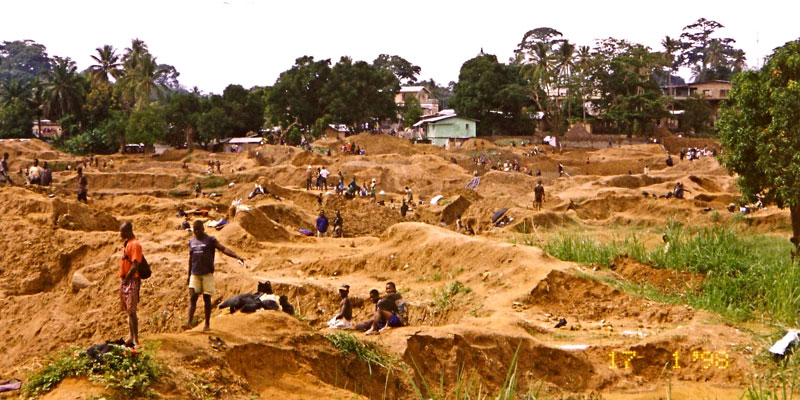
Canadians and the local industry need to be more aware of development diamonds and issues surrounding artisanal mining in general.
That’s the message from Dorothée Gizenga, executive director of the Diamond Development Initiative (DDI).
The first batch of so-called development diamonds will be hitting North American stores starting in December, but don’t count on Canadian retailers to be carrying them. Although DDI is headquartered in Ottawa, Gizenga says there is much work to be done to get the word out in Canada about development diamonds.
“The Canadian market is not aware of development diamonds,” said Gizenga in an exclusive interview with Jewellery Business from DDI’s booth at JCK Toronto. “They are not aware even of diamond issues. They feel kind of safe—they feel they have Canadian diamonds and there are no problems with them. They don’t realize that most of the jewellery sold here does not use only Canadian diamonds.”
DDI—which recently received charitable status in Canada—works directly with the world’s 1.5 million artisanal and small-scale miners who operate largely informally and outside the reach of standards to which mining companies would normally have access. Development diamonds are certified as being produced responsibly, safely, with respect of human and communities’ rights, and in conflict-free zones. They provide beneficiation to communities and payment of fair prices, converting them into instruments of development.
“When you speak with American retailers, they understand the issues of artisanal miners right away,” Gizenga says. “When you speak to African or European producers, they understand. When it comes to Canadians, [their reaction] is blank.”
Although she did not rule out taking the message directly to consumers to help create demand on the retail level, she said there has also been discussion to promote development diamonds to retailers through the Canadian Jewellers Association (CJA).
Looking ahead, all eyes of the diamond industry will be on the Kimberley Process’ (KP’s) plenary in November and proposed changes to broaden the definition of ‘conflict diamond’ to include stones that are directly related to armed conflict or other situations of violence. The debate over the KP’s effectiveness at stemming the flow of blood diamonds has brought DDI’s work to the fore, Gizenga says.
“We were created as a complement to the KP, and now we find ourselves being a platform from which it builds its credibility. The issues for which the Kimberley Process is being criticized are related to alluvial diamonds, and those are the areas we deal with,” she says, adding DDI is an official independent observer of the certification scheme.
“The changes to the definition of a conflict diamond will happen, no matter what the naysayers say,” she adds. “We’ve been working very hard to turn [things] around and many African countries—where most of the resistance is—have already accepted that we’ll be moving forward on that issue. It may not happen at the next plenary, but it will happen.”





